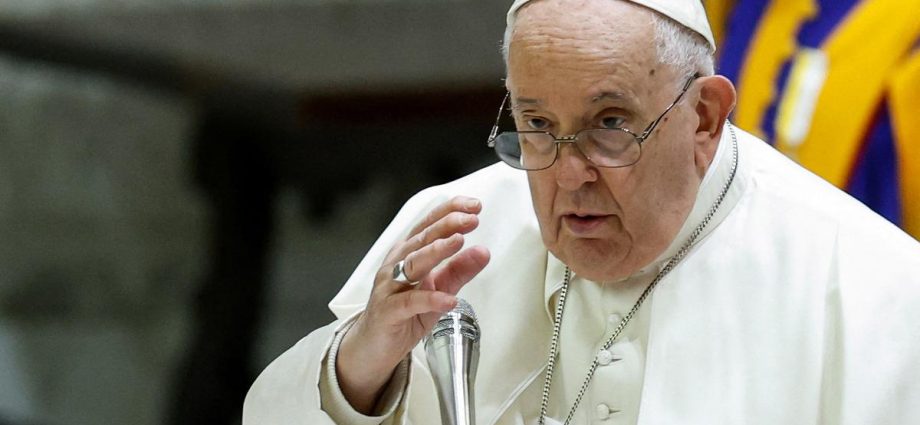By Stanislaus Alla
New Delhi, Dec 18, 2023: In a groundbreaking declaration, the Vatican announced December 18 that same-sex couples and others, living in irregular relationships, could seek and receive a blessing.
Cardinal Victor Manuel Fernadez, the recently appointed Prefect of the Dicastery for the Doctrine for the Faith announced this through Fiducia Supplcans: On the Pastoral Meaning of Blessings (Fiducia Supplicans translates into Supplicating Trust). Forty-five paragraphs follow, after a formal presentation and an introduction. Pope Francis studied, signed and approved of it, states the prefect.
Fiducia Suplicans reiterates that that there is no change in the traditional understanding of the meaning and significance of marriage and sexuality. Marriage, it reinforces, is the “exclusive, stable, and indissoluble union between a man and a woman, naturally open to the generation of children.”
Normally, in the Catholic weddings, the couple receive blessings, formally and publicly, imparted by the officiating minister. The ‘blessing’ that is permitted today through the Declaration is not the same as and not to be confused with this liturgical and ritual ‘Blessing,’ it says.
In nutshell what we have here is the “broadening and enrichment of the classical understanding of blessings.” The document explains the various meanings of blessings (explain them from the Scriptures, Church’s tradition and the Book of Blessings) and states that those faithful who freely and spontaneously, and with deep trust in God, seek blessings, could be considered and welcomed and blessed. Care ought to be taken that there is no confusion that this blessing in no way validates the ‘status’ of the couple.
To understand the significance of this announcement, we need to recall two things: 1) the dubia/doubts/questions some cardinals have written to Pope Francis (he publicly replied some of the questions) about his stand on marriage –especially in the context of those who live in same-sex relationships, and 2) the initiative of some bishops in Belgium and Germany who began to give a simple blessing (a simple one, not a formal ritual one) to same-sex couples.
What is innovative in this declaration: first, the development in the theological meaning of blessing along with its pastoral implications in light of Pope Francis’ approach of reaching out, and, second, some of those who could never imagine getting a blessing can seek and receive it now. While there is no change doctrinally, here one can see how the Catholic Church is trying to reach out to those who have been living on the margins (those who are living in same-sex unions and in irregular relationships).
The temptation is to interpret the document very liberally, expanding its meaning, possibly in the unintended direction! They may see that the same-sex couple are finally able to receive a blessing, and, therefore, their union stands legitimized (which it is not, the Declaration emphasizes). Alternately, those bishops, be they in Belgium, Germany or in other countries, may find their view vindicated.
On the other hand, those who want the same-sex couples to be formally, ritually blessed, in a liturgical celebration, may be disappointed as well.
Seeing the note and the development from a pastoral and compassionate point would be the best. Blessings, simple and non-ritual, are for all of God’s children, and those who seek, with a sincere heart, may receive them, and they may include those living in irregular unions.
(Jesuit Father Stanislaus Alla teaches moral theology at Delhi’s Vidyajyoti College of Theology.)


This explanatory note helps to put things in perspective and is to be appreciated. One may add that we also seek blessings for objects, like a house or a vehicle. It has a very limited function. Pope Francis is following the pastoral approach, not the Dogmatic one.